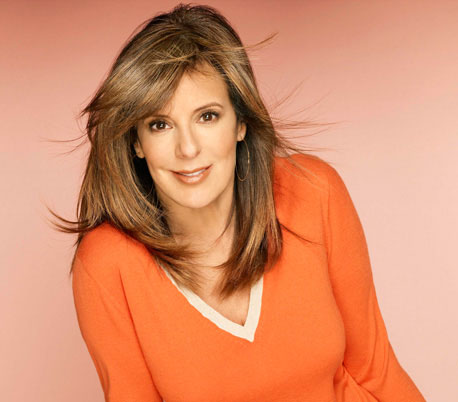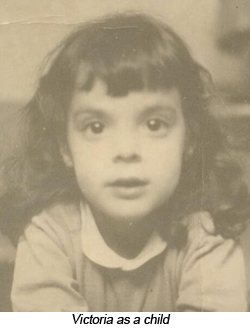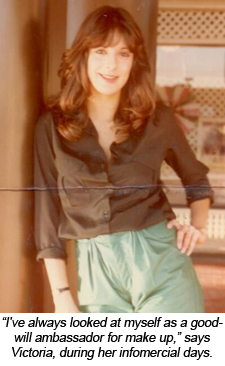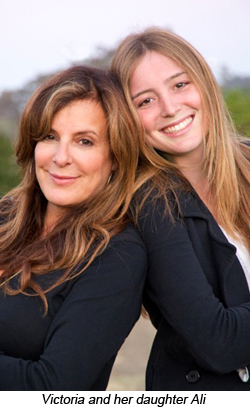
Location: Los Angeles, CA
Age: 54
Marital Status: Married
Victoria Jackson believes in “the power of mascara.” Despite her humble beginnings, this mother of three built a cosmetics empire by demystifying makeup in her wildly popular infomercials and books. Her husband of eighteen years, Bill Guthy, is a founding principal of Guthy-Renker, the marketing juggernaut behind fifteen other infomercial-driven brands including Proactiv and Sheer Cover makeup.
Between the two of them, Jackson and Guthy have amassed a couple of thriving businesses, six homes, three kids and a small fortune. But Victoria says the reason for it all wasn’t quite clear until two years ago. That’s when her then 17-year-old daughter, Ali, was diagnosed with a rare autoimmune disorder. Now she’s a mom on a mission, dedicated to finding a cure for the disease. She talked to FOF about how her “mascara empire” is fueling a medical revolution.
When did you become interested in the beauty business?
I always had a certain aesthetic. My family had no money, but if my mom had enough to buy three blouses, I’d rather just have one blouse that was really fantastic. I’d do my friends’ makeup—style them. I always say I had good taste, waiting for money to happen. My mom could afford to send just one child—my sister—to private school. She became a doctor, a clinical psychologist. I didn’t know exactly what I wanted to be when I grew up, but I got a scholarship to beauty school.
You learned to be a stylist?
I learned hair cutting and all of—and I’m still a good hairstylist—but I loved makeup. That was an area I really carved out for myself. I always hated the intimidation that you’d feel when you were having somebody do your make up at the department stores. I thought, ‘I want to learn this so I can teach other women how to do it.’
So you liked the concept of make up for others too, not just for yourself?
Oh yeah, absolutely. I wanted to take all the mystery out of applying it and looking better. I taught makeup at UCLA for ten years.
I didn’t realize they had a makeup course.

I created it. It was an extension of the visual arts department. That’s how I went on to do the infomercial. One of my students approached me; he worked for a group of guys that market products through television. This was in 1988. I said, ‘That’s interesting, because I’ve created this line of cosmetics…’
I met with the company—American Telecast—and I pitched them on my concept of how to sell cosmetics on television. I had created these color-coordinated kits—peach, pink and red—inspired by my teaching. The lips matched the blush and the eyes, and it was packaged with a how-to video. My first infomercial came out in 1989 and was a huge success. I since went on to do 11 more infomercials over 13 years.
Is your infomercial the one where there are three women…

It was Lisa Hartman, Ali McGraw, Meredith Baxter…
Yes, yes, sitting on the sofa?
Yes. That was my thing. And since then I’ve always looked at myself as a goodwill ambassador for make up.
Is that how you met your husband—through the infomercial business?
No. I had already done a few infomercials before I met my husband.
Do you still do infomercials?
I stopped about seven years ago.
Why?
Basically, my products now are licensed worldwide in retail. So it felt like a natural time to transition off television. I had another cosmetics company called Lola, which I licensed to Marc Jacobs for his fragrance. I have a library of over 600 products and I sell off of my website www.vmakeup.com.
If you had to give women over 50 one beauty tip, what would it be?
Less is best. That’s the biggest gift you can give yourself. Adding too much—wearing too much cover up and concealer—just makes you look older.
That’s great advice. I see young women in Sephora wearing so much makeup.
Well, they’re still trying to find themselves. They almost need to do that. I had to do that. We all have to figure it out. You’ve gotta apply ten layers to find out you’re still beautiful without it.
It’s really a metaphor for aging, you know? As you start peeling back the layers, you get to the core of who you are. By the time you you’re fifty, you just need strategic camouflage here and there—the accents—and then you should be good to go. That’s what’s so great about being fab over fifty—you’re figuring it out.
I agree.
And if you’re still carrying around that same baggage of insecurity about how you look at fifty, I think you’ve wasted a lot of time. Where is it getting you?

Exactly. Let’s talk about your passion now—your daughter.
Yes. My passion now—and what’s on my to-do list—is to find a cure for this orphan disease that my daughter was diagnosed with.
Orphan disease—what does that mean?
They’re rare diseases that are often ignored by the medical community because not enough people have them. But they’re probably the diseases that are going to unlock the mysteries of bigger things like MS and other autoimmune disorders. My daughter has one called NMO, neuromyelitis optica.
How does that affect her?
She’d never been ill a day in her life. Then almost two years ago, when she was 14, she started having eye pain. Within a week she began to go blind in one eye. NMO affects the optic nerve and the spinal chord. It’s an autoimmune disease—the body is attacking itself and they don’t know what triggers it.
How frightening.
When she was diagnosed, they told me I could have four more years with her before she might be a quadriplegic, blind, paralyzed or—gone. As a mom, I felt that just wasn’t even an option. I went into “Mom on a Mission” mode.
What did you do?
I learned every single thing I could about the disease. I said to myself, ‘I will now close the book on mascara and open the book on medicine.’ I learned the science and started a foundation—The Guthy-Jackson Foundation—to unite and fund the smartest people in the world that are working on this. I’m probably about $15 million into my funding for different institutions from the Mayo Clinic to Johns Hopkins.
I just had my second symposium where I brought all the people from around the world that are researching this together in one room to talk to each other and create a blueprint for finding a cure.
How many people have this disease?
Probably 10,000 people in the United States, however, this number is considered low, as many people have been misdiagnosed with MS who actually have NMO.
Does it affect mainly young people?
No, the range is all over. You can have this when you’re 20, 40, 80 years old, or even as a child. There’s no rhyme or reason to it.
What is your daughter’s prognosis at this point?
I think it’s going to be very good. We’re keeping it under control, controlling attacks. Her sight came back in her one eye. But, she’s had many, many attacks in her spinal cord.
What an incredible story.
It’s why I have a bigger calling in life now. And probably everything I did in my career brought me to this moment. I’ve learned how to structure and build a business and I’ve applied all of that into the world of medicine.
If this happened to you and you didn’t have any resources, meaning money, how do you think you would cope?
I think maybe that’s why it happened to me. I mean, maybe I was supposed to have this money just to be doing what I’m doing now. As my daughter said at some point, ‘this isn’t just about you and me anymore.’
If someone had told me that I’d be having meetings with molecular scientists at Stanford and traveling to the Mayo Clinic three and four times a year to work with their scientists? I mean, not my sister—the doctor—but me, the makeup artist! That is the Power of Mascara.

